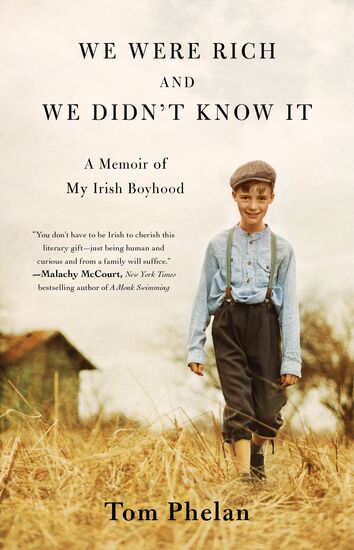The banner of the Scotch-Irish Society of the United States, which was founded in 1889.
By Irish Echo Staff
The Scotch-Irish Society of the USA is hosting a symposium via Zoom on this Saturday entitled “Locating the ‘Scotch-Irish’: Exiles and Migrants.”
It will feature two leading academic speakers in the morning session and two in the afternoon. Irish Consul General to New York Ciarán Madden will introduce the webinar at 10 a.m.
Madden was born in County Cork. His career at the Irish Department of Foreign Affairs began in November 1994. he served for four years as Ambassador of Ireland to the United Arab Emirates. On his return to Dublin, he was appointed Director for the Irish Abroad Unit in September 2013, and led the drafting of The Global Irish – Ireland’s Diaspora Policy.

Consul General Ciarán Madden.
William Roulston, Research Director, Ulster Historical Foundation, Northern Ireland, will get the discussion going by asking “Who were the Presbyterian Exiles of ’98?”
Influenced by the American and French Revolutions, a group of mainly middle-class Presbyterians founded the Society of United Irishmen in Belfast in October 1791 to bring about reform of the political system in Ireland. Soon afterwards clubs were founded in Dublin and elsewhere. Following efforts by the government to suppress it, the United Irishmen reorganized themselves as a secret organization and began to prepare for rebellion. Fighting began in Ulster in early June 1798 and a number of places in Antrim and Down were captured by the United Irishmen. However, with the crushing defeat of the United Irishmen at the Battle of Ballynahinch the rebellion in Ulster was all but finished.
It is impossible to be certain how many Presbyterians left Ulster either directly or indirectly as a result of their involvement, alleged or otherwise, in the United Irishmen and 1798 Rebellion. Commenting on this period in his 1803 work, “Sketches of the History of Presbyterians in Ireland,” Rev. William Campbell wrote, “Presbyterians went in thousands to America. And if ships had been found, thousands more would have sought a peaceful asylum in that land of Liberty.” A significant element among them was composed of Presbyterian ministers and probationers.
This talk will present an overview of the Presbyterian exiles of ’98, highlighting and discussing their family backgrounds, livelihoods and participation in radical politics in the 1790s.

Dr. William Rouston.
Roulston was awarded a PhD in Archaeology by Queen’s University Belfast in 2004. He has written and edited a number of publications on different aspects of Irish and, in particular, Ulster history.
The other morning speaker is Peter Gilmore, adjunct Instructor in History at universities in southwestern Pennsylvania and southeastern Ohio. He is the author of “Irish Presbyterians and the Shaping of Western Pennsylvania, 1770-1830” and “Exiles of ’98: Ulster Presbyterians and the United States.”
Gilmore’s talk will focus on how the migration of Ulster Presbyterians to the United States in the early national period represents simultaneously both a continuation of the “Scots-Irish” migration of the colonial era and something new. On the one hand, the “exiles of ‘98 ” sought out and settled amongst earlier Ulster Presbyterian immigrants. At the same time, Ulster Presbyterian immigrants with a connection to the political tumult in Ireland during the 1790s and early 1800s had a disproportionate role in the formation of the American political system.
Indeed, the formation and ultimate electoral victories of Thomas Jefferson’s Democratic-Republicans would be inconceivable without the support of Irish-American voters. Newer arrivals in “Scots-Irish” communities gave leadership to an Irish-American diaspora which was significantly facilitated by the Democratic-Republican Party.
As political developments in the United States as well as in Ireland deepened the sense of identification between “Irish” and “republican,” political exiles among Irish Presbyterians contributed both the rank and file and leadership to this evolving dynamic.
As in Ulster in the 1790s, the politically committed were drawn both from more liberal trends within Ulster Presbyterianism as well as smaller, more theologically conservative denominations. Indeed, at times the evidence suggests a disproportionate role played by the clergy and laity of more traditional or orthodox Presbyterian denominations or inclinations.
The afternoon session will be introduced by Richard K. MacMaster, History Department, University of Florid, who has written many books and articles on the Scotch-Irish and presented papers on this subject at conferences and conventions in the U.S. and overseas. Besides his writings on the Scotch-Irish he has published books on the Mennonites, German settlers in America, and various frontier settlements. He has written on planters in Virginia and Maryland.
[caption id="attachment_110854" align="alignnone" width="214"]
Judith Ridner, Professor of History, Mississippi State University, Starkville, Mississippi, the first speaker, will ask “Did the ‘Scots-Irish’ have a distinctive material culture?” Her most recent book is “The Scots-Irish of Early Pennsylvania: A Varied People.”
Ridner says that visual and written depictions of the Irish—Protestants and Catholics—and the Scots consistently represented these groups as physically distinct and culturally inferior. Caricaturists, travelers, and pamphleteers, for example, satirized how they dressed, the tools or implements they used or carried, and the material conditions in which they lived and worshipped; song writers and poets poked fun at the sound of their brogues and the style of their speech.
“With these portrayals of Irish and Scots people as my launching point, my talk takes up the understudied but important topic of ‘Scots-Irish’ material culture. My goal is to raise questions about ‘Scots-Irish’ cultural identity in Europe and especially America so that we might better understand who the ‘Scots-Irish’ were as an immigrant people. I will also explore how observers assessed their potential for assimilation as American colonists and white citizens of the new United States.”
Finally, Notre Dame’s Patrick Griffin, who is the author of “The People with No Name: Ireland’s Ulster Scots, America’s Scots Irish and the creation of a British Atlantic World” will look at early Irish migration in its broad context. Movement and settlement were bound to the changes that gripped the broader Atlantic world in the eighteenth century, and this burgeoning system even incorporated frontier regions in America. This talk will place the famous migration side-by-side some of the other processes that both defined the eighteenth century and reshaped the world as we know it, including a consumer revolution, the growth of chattel slavery in America, and the rise of an early American middle class.
To enroll for the webinar go to: http://www.scotch-irishsocietyusa.org.








